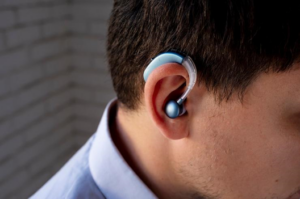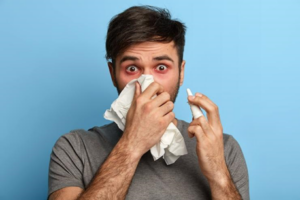
Are you concerned about protecting your hearing from potential damage? Look no further than the expertise of ENT specialists. These medical professionals are trained in preventing, diagnosing, and treating ear, nose, and throat conditions. In our article, Preventing Hearing Loss: ENT Specialists on Effective Hearing Protection, we seek professional advice when preserving your hearing.
Our ears are constantly exposed to noise from everyday environments and occupational hazards. Failure to protect our hearing can have severe consequences, including permanent damage and hearing loss. That’s why it’s crucial to turn to ENT specialists with the knowledge and experience to guide you toward effective hearing protection solutions.
In this informative article, we explore the various methods recommended by ENT specialists for preventing hearing loss. From custom earplugs to hearing protection devices, the strategies shared by these experts can help safeguard your hearing in various situations. By collaborating with ENT specialists, you can proactively take steps to prevent hearing loss and preserve your auditory health.
Understanding Hearing Loss And Its Causes
Hearing loss affects millions of individuals worldwide and can manifest in various forms, ranging from mild to profound impairment. Understanding the underlying causes of hearing loss is essential for effective prevention. The most common type of hearing loss is age-related, known as presbycusis, which typically occurs gradually as individuals age. Changes in the inner ear structures or auditory nerve can lead to a decline in hearing sensitivity.
Another significant cause of hearing loss is exposure to loud noises. Noise-induced hearing loss (NIHL) occurs when individuals are subjected to sounds exceeding 85 decibels for extended periods. Environments such as concerts, construction sites, and factories often expose workers to hazardous noise levels. The damage caused by such exposure can be irreversible, making noise protection crucial for those in high-risk occupations.
Additionally, certain medical conditions can contribute to hearing loss. Infections, tumors, and ototoxic medications are among the factors that can affect auditory health. ENT specialists emphasize the importance of early detection and intervention in these cases. By understanding the causes of hearing loss, individuals can take proactive measures to safeguard their hearing and seek professional assistance when necessary.
The Importance Of Hearing Protection
Hearing protection is essential for preventing both temporary and permanent hearing loss. The auditory system is delicate, and exposure to excessive noise can lead to irreversible damage. This damage often goes unnoticed until it becomes severe, resulting in frustration, social withdrawal, and a reduced quality of life. Therefore, it is imperative to prioritize hearing protection in various conditions, whether at work or during recreational activities.
Employers are responsible for providing hearing protection to employees exposed to loud environments. Regular hearing assessments and protective equipment can significantly reduce the risk of hearing loss. Organizations prioritizing hearing safety protect their workforce and enhance overall productivity by reducing the incidence of hearing-related health issues.
Individuals should also take the initiative to protect their hearing. Simple measures, such as wearing earplugs during concerts or using noise-canceling headphones in loud environments, can have a profound impact. By raising awareness about the importance of hearing protection, we can create a culture where auditory health is prioritized, preventing the long-term consequences of hearing loss.
Common Misconceptions About Hearing Protection
Despite the growing awareness of hearing loss, several misconceptions about hearing protection persist. One common myth is that hearing protection is only necessary for those who work in loud environments. In reality, anyone can benefit from hearing protection, especially in social settings where loud music or noise occurs. The idea that only those in specific professions need protection limits the understanding of who is at risk for hearing loss.
Another misconception is that hearing protection is cumbersome or uncomfortable. While some devices may initially feel awkward, technological advancements have developed various comfortable and practical options. Custom-fitted earplugs and sophisticated hearing protection devices can provide a secure fit without compromising comfort. Individuals must explore different options to find the right fit for their needs.
Lastly, many believe hearing protection is unnecessary if they don’t perceive immediate symptoms of hearing loss. However, hearing damage often occurs gradually and may not be noticeable until significant loss has occurred. Proactive measures are vital in preventing irreversible damage. By dispelling these misconceptions, we can encourage more people to prioritize their hearing health and make informed choices regarding protection.
Types Of Hearing Protection Devices
Various hearing protection devices are available to suit different needs and environments. Earplugs are among the most common forms of hearing protection. They can be made from foam, silicone, or custom-molded materials and offer a range of protection levels. Foam earplugs are cost-effective and widely available, making them suitable for casual use, while custom-molded options provide a tailored fit for those requiring regular protection.
Another popular option is earmuffs, which cover the entire outer ear. They offer more protection than earplugs and are ideal for individuals working in boisterous environments. Earmuffs can also be equipped with electronic features, allowing users to hear conversations while protecting against loud noises. Their versatility makes them an excellent choice for both professional and recreational activities.
In addition to earplugs and earmuffs, specialized devices are designed for specific situations. For instance, musicians may use filtered earplugs that reduce sound levels without distorting the music. Similarly, hunters may opt for electronic hearing protection that amplifies ambient sounds while blocking harmful gunfire noise. Individuals can effectively safeguard their hearing while enjoying activities by selecting the appropriate hearing protection device.
Choosing The Right Hearing Protection For Different Environments
Selecting the appropriate hearing protection depends on various factors, including the noise level, duration of exposure, and personal comfort. Opting for high-fidelity hearing protection for environments with noise levels exceeding 85 decibels, such as construction sites or concerts, is crucial. This reduces harmful sounds while allowing for communication and awareness of surroundings.
Lighter protection may suffice in quieter environments, such as offices or homes. Adjustable earplugs can be a practical choice for those needing occasional protection without the bulkiness of earmuffs. It’s essential to assess the specific circumstances and choose a device that meets safety and comfort needs.
Additionally, individuals should consider their lifestyle and activities when selecting hearing protection. For instance, frequent travelers may benefit from noise-canceling headphones that provide safety and audio enjoyment during flights. By understanding the various environments in which hearing protection is necessary, individuals can make informed decisions that best suit their auditory health.
Conclusion: Prioritize Your Hearing Health Today
In conclusion, preventing hearing loss is essential for maintaining long-term auditory health, and ENT specialists play a crucial role in guiding individuals toward effective hearing protection solutions. By understanding the causes of hearing loss, selecting the proper protection devices, and using them correctly, individuals can safeguard their hearing from noise-induced damage. It’s important to debunk misconceptions about hearing protection and take proactive steps in both personal and professional environments. With the right strategies, individuals can protect their hearing, enjoy a better quality of life, and prevent the long-term consequences of hearing loss. Always remember the key to preserving your hearing lies in early prevention, informed choices, and consistent care.



